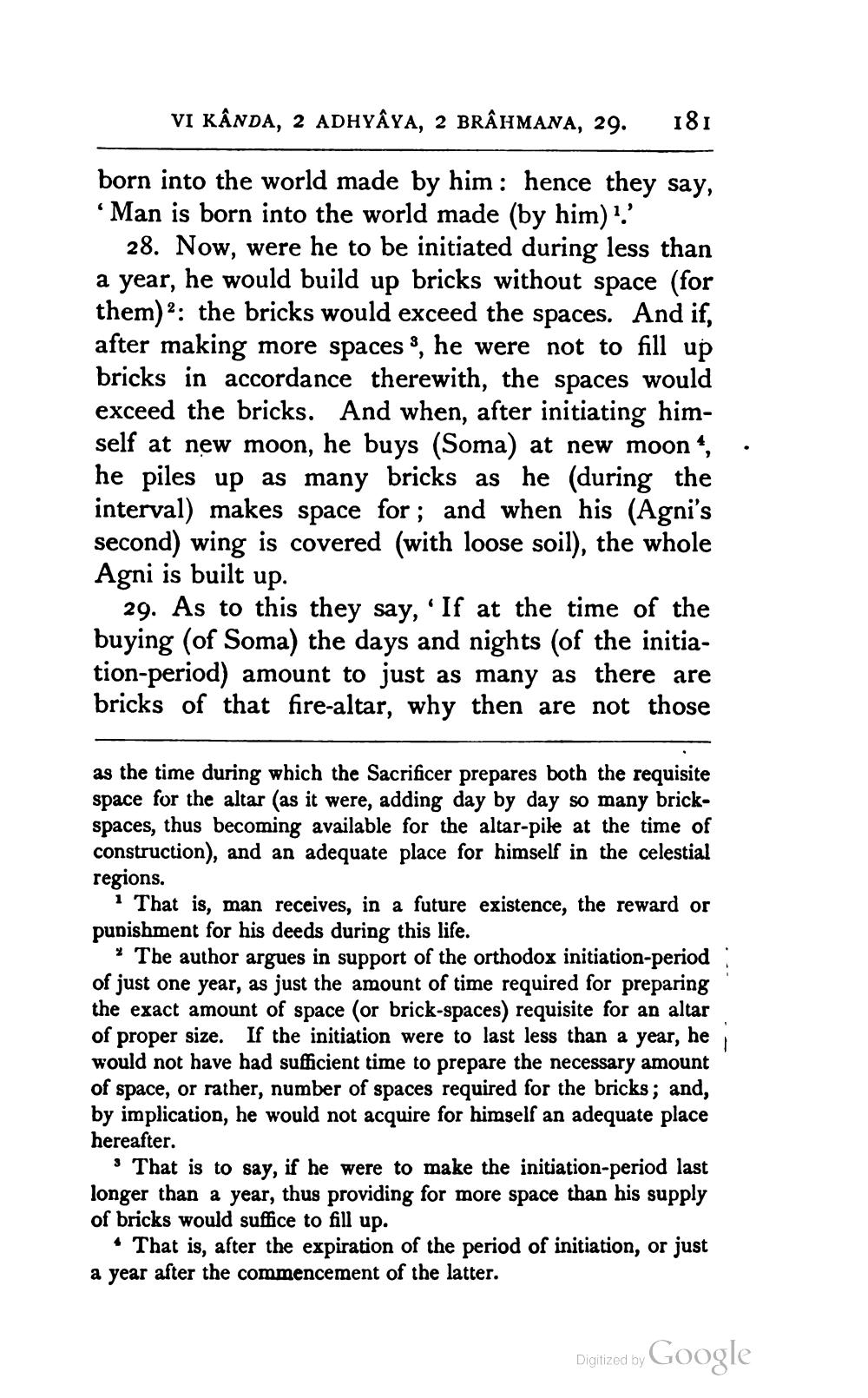________________
VI KÂNDA, 2 ADHYÂYA, 2 BRÂHMANA, 29.
181
born into the world made by him: hence they say, 'Man is born into the world made (by him)?
28. Now, were he to be initiated during less than a year, he would build up bricks without space (for them)2: the bricks would exceed the spaces. And if, after making more spaces 3, he were not to fill up bricks in accordance therewith, the spaces would exceed the bricks. And when, after initiating himself at new moon, he buys (Soma) at new moon", . he piles up as many bricks as he (during the interval) makes space for; and when his (Agni's second) wing is covered (with loose soil), the whole Agni is built up.
29. As to this they say, 'If at the time of the buying (of Soma) the days and nights (of the initiation-period) amount to just as many as there are bricks of that fire-altar, why then are not those
as the time during which the Sacrificer prepares both the requisite space for the altar (as it were, adding day by day so many brickspaces, thus becoming available for the altar-pile at the time of construction), and an adequate place for himself in the celestial regions.
That is, man receives, in a future existence, the reward or punishment for his deeds during this life.
* The author argues in support of the orthodox initiation-periodi of just one year, as just the amount of time required for preparing the exact amount of space (or brick-spaces) requisite for an altar of proper size. If the initiation were to last less than a year, he would not have had sufficient time to prepare the necessary amount of space, or rather, number of spaces required for the bricks; and, by implication, he would not acquire for himself an adequate place hereafter.
That is to say, if he were to make the initiation-period last longer than a year, thus providing for more space than his supply of bricks would suffice to fill up.
• That is, after the expiration of the period of initiation, or just a year after the commencement of the latter.
Digitized by Google




